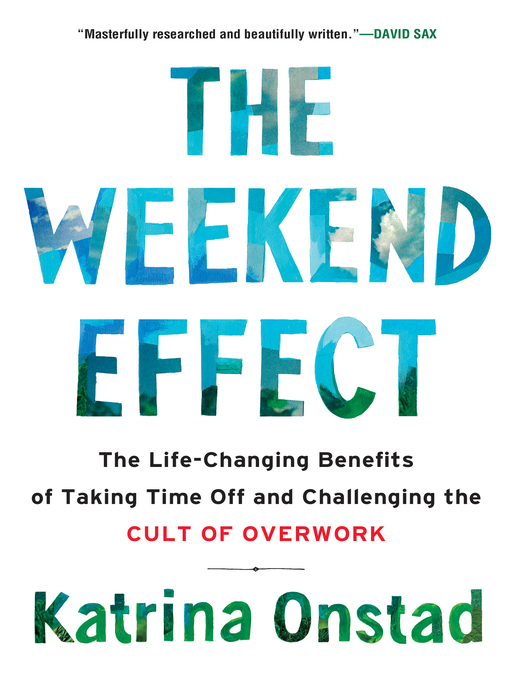A well-lived weekend is the gateway to a well-lived life. The Weekend Effect shows us how by saving the weekend we can save ourselves.
The weekend—the once-sacred forty-eight hours of leisure—has been lost to overbooked schedules, pinging devices and encroaching work demands. Many of us are working more hours than we did a decade ago, and worse, we allow those hours to slide over seven days a week, giving us no respite to tune out and recharge.
We don't need the research to tell us that this is hurting us. Our health is deteriorating, our social networks (the face-to-face kind) are weak and our productivity is down. It wasn't long ago that working less and living more was considered a virtue. So what happened?
In The Weekend Effect, journalist Katrina Onstad, herself suffering from Sunday-night letdown, digs into the history, the positive psychology and the cultural anthropology of the great missing weekend. She pushes back against the all-work, no-fun ethos and follows the trail of people, companies and countries who are vigilantly protecting their weekends for joy, for adventure and, most important, for meaning. Readers of The Happiness Project, All Joy and No Fun and Thrive will find personal and business inspiration in Onstad's well-researched argument to re-frame our weekends.

